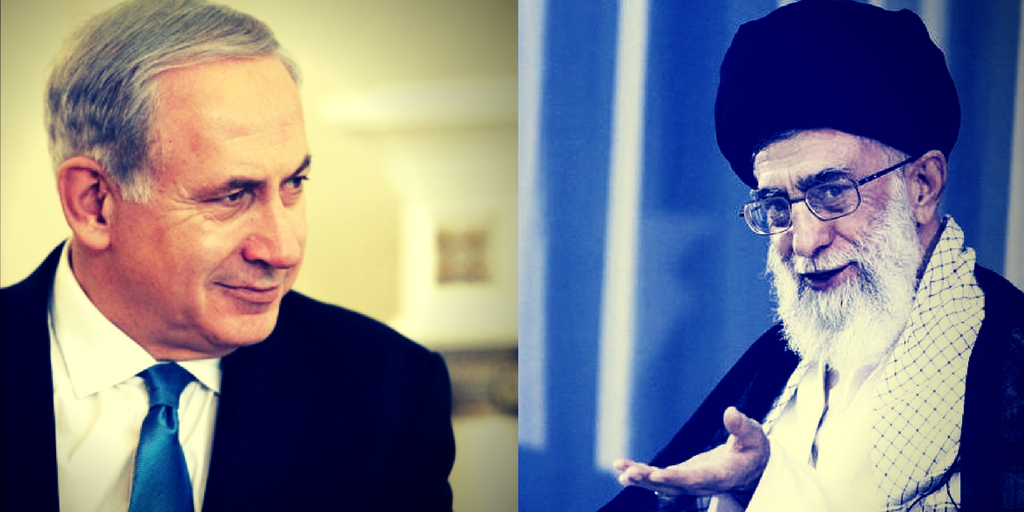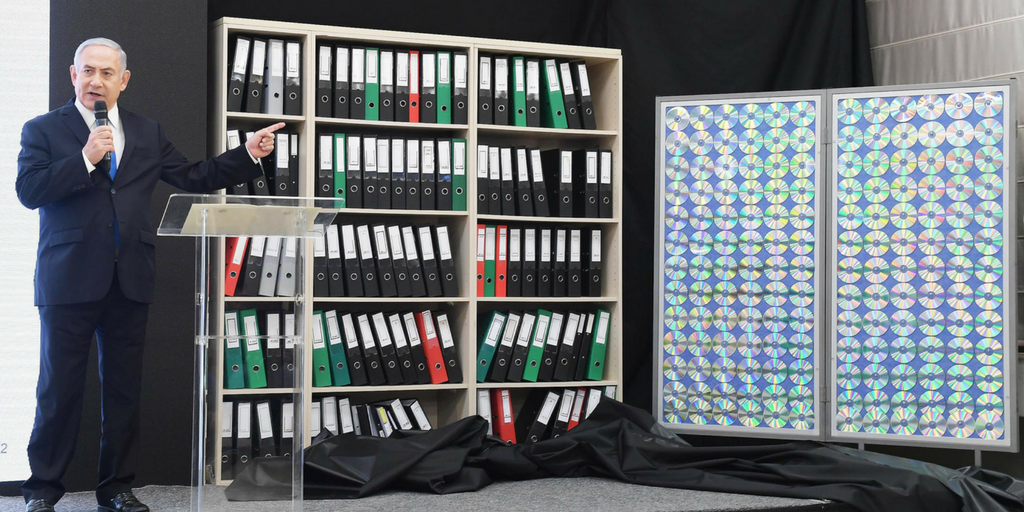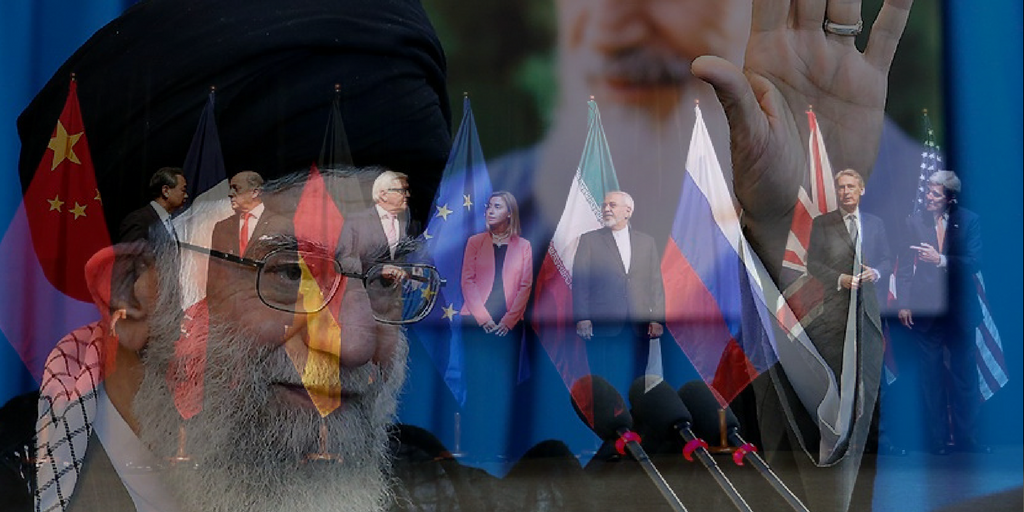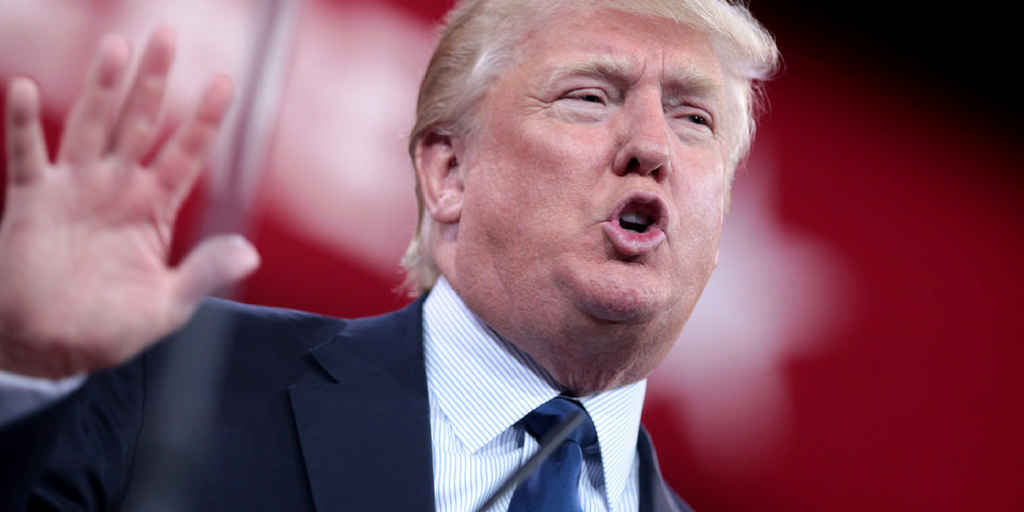As the experience of 2003 shows, Iran will only abandon its nuclear program if confronted by what it perceives to be a tangible military threat
In a large country with multiple facilities and ample experience in nuclear concealment, violations will be inherently difficult to detect. Devising theoretical models of inspection is one thing. Enforcing compliance, week after week, despite competing international crises and domestic distractions, is another. Any report of a violation is likely to prompt debate over its significance—or even calls for new talks with Tehran to explore the issue – Henry Kissinger and George Shultz, Wall Street Journal, April 7, 2015.
…in 2015, Congress passed the Iran nuclear agreement review act to ensure that Congress’s voice would be heard on the deal. Among other conditions the law requires the president of his designee to certify that the suspension of sanction under the deal is appropriate and proportionate to…measures taken by Iran to terminate its illicit nuclear program. Based on the factual record…I am announcing today that we cannot and will not make this certification we will not continue down a path whose predictable conclusion is more violence, more terror, and the very real threat of Iran’s nuclear breakout – President Donald Trump, October 13, 2017.
Last Friday, the US president, Donald Trump, refused to certify the July 2015 nuclear Iran “deal” concluded in Vienna on July 14, 2015 between Iran, and the P5+1(the five permanent members of the United Nations Security Council plus Germany), and the EU on the other.
Dubbed with the wildly inappropriate misnomer the “Joint Comprehensive Plan of Action” (JCPOA) the “deal” is—as we shall see—anything but “comprehensive”. Moreover, it could hardly be designated a “plan of action” when a far more fitting characterization of it would appear to be a “plan of inaction”.
Decertification: The moral imperative
In effect, by decertifying the JCPOA, Trump was merely fulfilling his legal obligations under the Iran Nuclear Agreement Review Act (INARA).
Passed immediately following the signature of JCPOA, the INARA bill mandates (among other things):
The President shall, at least every 90 days, determine whether the President is able to certify that:
– Iran is fully implementing the agreement,
– Iran has not committed a material breach of the agreement,
– Iran has not taken any action that could significantly advance its nuclear weapons program, and
– Suspension of sanctions against Iran is appropriate and proportionate to measures taken by Iran with respect to terminating its illicit nuclear program and vital to U.S. national security interests.
In light of the record of Iran’s gross misconduct, it is patently clear—or at least, it should be—that no US president could, in good faith, certify that Iran was in compliance with its JCPOA commitments or that continued US adherence to the JCPOA—particularly the suspension of sanctions against Iran—was “vital to US national security interests”.
After all, how can anyone certify that Iran is in compliance with its pledges to not “advance its nuclear weapons program” or is not in “material breach of the agreement”, when this is impossible to verify, given the fact that Tehran has barred inspection of its military sites—the very sites in which one might suspect militarized Iranian endeavor is taking place.
Moral imperative (cont.)
But perhaps even more astonishing and disconcerting is the revelation that “secret side deals” exist between Iran and third parties, to which the US is neither privy, nor party to—and hence has not the foggiest notion as to how these may impact or impair the implementation of, or the adherence to the terms of the JCPOA. Typically, these involve “deals” between Tehran and the International Atomic Energy Agency (IAEA), the body charged with the inspection of Iranian nuclear sites. Incredibly, in some cases, these deals allow Iran to conduct its own inspection of its facilities. Moreover, the IAEA is obliged to keep much of the information gathered confidential and not share it with other parties—including the US.
You couldn’t make this stuff up!
No less crippling to effective inspection—and hence to the ability of the US president to certify that Iran is in compliance with the JCPOA—is the fact that if suspicion arises that illicit activity is being conducted, Iran must be given weeks of advance warning, providing it ample opportunity to conceal or dispose of any incriminating evidence. Worse, the Iranians must also be provided with adequate reasons for the suspicion of untoward conduct on their part, thus risking exposure of intelligence sources that provided the relevant information!
Indeed, these very absurdities of the JCPOA were crisply and caustically conveyed by Israeli PM Benjamin Netanyahu in a Knesset address on the day immediately after it was reached: “It’s like giving a criminal organization that deals drugs a 24-day warning before inspecting its drug lab…The agreement also requires the world powers to… show Iran the very intelligence for which they want to conduct the inspections in the first place.”
Incomprehensive plan of inaction
To be honest Donald Trump has never really been my “cup-of-tea”. Indeed, without wishing to be too disparaging, to my mind, his incontestable advantage is that he is…not Hilary Clinton.
That said, the decertification speech was undeniably impressive. He provided an effective tour d’horizon of Iranian malfeasance: Tehran’s violation of agreed production quotas of heavy water and operation of advanced centrifuges; its intimidation of inspectors from carrying out their work effectively; its flouting of international resolutions regarding the development of ballistic missile technology; its fomenting turmoil “throughout the Middle East and beyond”; and last but not least, its sponsorship of terror across the globe.
In this, Trump demonstrated compellingly that Iran had not only violated the spirit, but also the letter, of the JCPOA. But beyond that, he not only exposed how appallingly incomprehensive this purportedly “comprehensive” blueprint is, but also the grave perils of inaction the alleged “plan of action” necessarily entails.
Indeed, without wishing to push historical parallels too far, some portions of Trump’s speech were distinctly reminiscent of Winston Churchill’s stern caveat in his epic account of World War II, ‘The Gathering Storm,’ in which he cautioned: “…. if you will not fight when your victory is sure and not too costly; you may come to the moment when you will have to fight with all the odds against you and only a precarious chance of survival”.
Expressing strikingly similar sentiments, Trump warned: “History has shown that the longer we ignore a threat, the more dangerous that threat becomes…We will not continue down a path whose predictable conclusion is more violence, more terror, and the very real threat of Iran’s nuclear breakout”.
Incomprehensive inaction (cont.)
Trump detailed Iran’s transgression as justification for his decision to desist from certifying the JCPOA: “Our policy is based on a clear-eyed assessment of the Iranian dictatorship, its sponsorship of terrorism, and its continuing aggression in the Middle East and all around the world…Based on the factual record I have put forward, I am announcing today that we cannot and will not make this certification.”
Of course, this catalogue of Iranian misconduct underscores just how hopelessly ineffectual the entire JCPOA edifice is. For by limiting its relevance to Iran’s nuclear program (and even then inadequately), it, in effect, allows the Islamist theocracy license to wreak mayhem in any other sphere, wherever and whenever it chooses—without incurring any of the penalties in the unverifiable nuclear deal.
To convey just how ludicrous the JCPOA arrangement is, just imagine reaching an agreement with a belligerent neighbor down the road that he will refrain from attacking you and your family with firearms but is free to stab you with knives, batter you with clubs, impale you on spears and target you with arrows. Worse, not only is he free to do this without retribution, but you actually agree to help him finance his stockpile of said knives, clubs, spears and arrows.
Ridiculous as this might seem, this is in principle precisely what Trump was called on to certify last Friday—and is being vilified by allies and adversaries for not doing so.
Go figure.
The futility of “fixing”, the necessity of “nixing”
While decertification of the JCPOA is both inevitable and imperative, it is not in itself an alternative strategy. Indeed, even the Trump administration itself has been at pains to clarify that, in and of itself, the decertification does not automatically imply that—with all the withering criticism it has of the agreement—the US will not necessarily opt out of it.
This is a risky position to adopt and, like a man with one foot on the pier and the other in the boat, it is one that cannot be maintained for long. Indeed, the US has now created a clear choice for itself if it is not to retreat humiliatingly from the robust stance it has taken: Either to endeavor to fix the defective JCPOA, or to nix it.
Any remotely realistic analysis will swiftly lead to the conclusion that any endeavor to fix the JCPOA (i.e. introduce far more intrusive inspection procedures and impose far more extensive and intensive punitive measures for delinquent Iranian behavior) are futile.
Clearly, it would require large doses of unfounded and unbounded optimism to believe that Iran could be induced by diplomatic pressure to submit itself to a harsher regime of inspections/sanctions than that currently stipulated in the JCPOA. After all, if the P5+1 countries backed away from sterner coercive measures when confronting a weaker, poorer Iran, what reason is there to believe (and more importantly, for Tehran to believe) they would stand up to a now much richer and stronger Iran??
This bleak prospect leaves us with only one other option – the necessity to nix the JCPOA in its entirety – which might just happen anyway. For as Brookings Institution’s Suzanne Maloney predicts: “Decertification corrodes the legitimacy of the deal…[It]will slowly collapse.”
Decertification- what now?
So how is the US (and Israel( to deal with a post-JCPOA reality? What strategies are available to prevent a good initiative from making the situation worse?
According to its adherents, the JCPOA was the best possible agreement. This is clearly an untenable contention—unless the underlying assumption is that the only feasible alternatives are those Iran deigns to accept.
However, if the rationale is not to accommodate the ayatollahs, but to coerce them or replace them, the alternatives are clear:
The first of these options is to enhance US sanctions, backed by a credible threat of military action aimed at destroying Iran’s nuclear facilities and their attendant infrastructure.
Skeptics as to the efficacy of such a harsh alternative should be reminded of the events of 2003, when Iran, in effect, curtailed its nuclear program after the US-led invasion of Iraq created a tangible threat which US-military presence projected in the eyes of the Islamic Republic. As a result “Iran agree[d] to suspend its uranium–enrichment activities and ratify an additional protocol requiring Iran to provide an expanded declaration of its nuclear activities and granting the IAEA broader rights of access to sites in the country.”
Significantly, once the threat perception receded, Tehran annulled this agreement and reverted to accelerating its nuclear program.
What now? (cont.)
The only effective alternative to coercing the ayatollahs to abandon their nuclear program is to replace them –i.e. induce regime change. Sadly, just as it has greatly reduced the possibility (or at least, greatly increased the cost) of coercing them to forgo nuclear weapons capability, so it has dimmed the prospects for regime change. In the words of one well-known Iranian expatriate: “The Vienna [i.e JCPOA] deal bears a very grave danger for Iran’s civil society. Not only won’t we see their economic situation improve, but the regime will also have an incentive to abuse human rights more severely. A flood of cash is going into the pockets of this leadership. It will be used to tighten their grip [on power] and to further imprison, torture and kill innocent Iranians.”
So over two years after it was agreed upon, all the JCPOA has really achieved is to empower the Iranian tyranny militarily, enrich it economically and entrench it politically—for nothing more than a dubious delaying of its acquisition of weaponized nuclear capability.
Which, of course, is why decertifying it was no more than a moral imperative.





